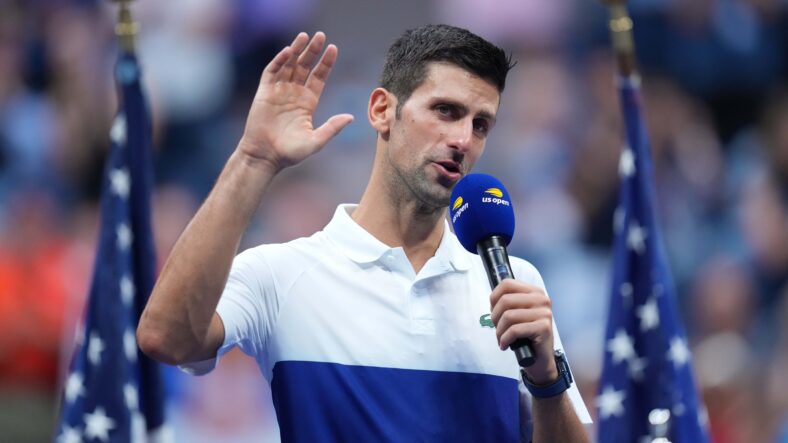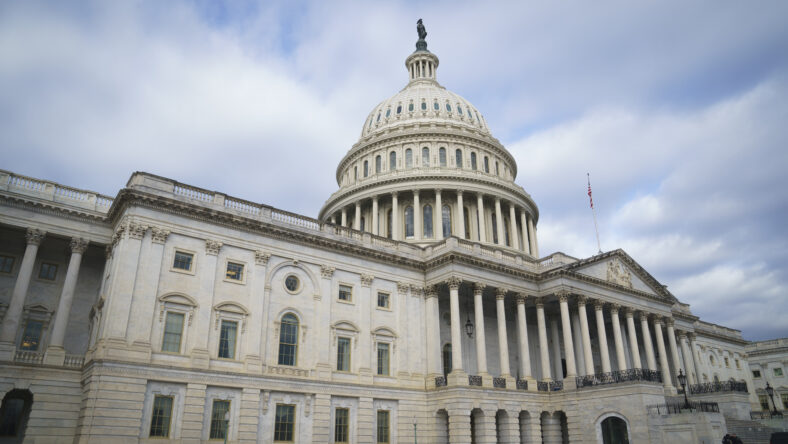Djokovic Loses Appeal, Departs Australia. Government’s Attorney Says Djokovic “Has Now Become An Icon for the Anti-Vaccination Groups”

UPDATE: The Court Upheld the Immigration Minister’s decision to cancel Djokovic’s visa and he is leaving the country. He will be unable to defend his title at the Australian Open and win a record 21st singles major title. Deportation orders typically carry a three-year ban so he may not be able to compete in Australia for at least three years, unless the country’s officials decide otherwise. Below is the full hearing and an explanation of why it was more likely than not that the Immigration Minister’s order would stick!
In a lengthy hearing just a day before Novak Djokovic was slated to compete in round one of the Australian Open, attorneys for the detained tennis star argued that the Immigration Minister unfairly cancelled his visa without considering the effects it would have on how anti-vaxxers feel about the Australian government.
Djokovic’s attorneys faced an uphill battle as they attempted to appeal an order by a government official who is legally empowered under Australia’s Migration Act to decide whether to grant or cancel the visas of outsiders coming into the country.
The only matter up for appeal was whether the Minister fairly exercised his power and if so, his decision would stand. A court cannot legally decide whether to grant or cancel Djokovic’s visa, as it is outside of the court’s powers.
For this reason, Djokovic’s attorneys had to show that either the Minister improperly exercised his power or made a procedural error in exercising it.
They spent hours attempting just that and the whole hearing can be viewed below.
Australia’s Immigration Minister cancelled Djokovic’s visa in the wake of an international frenzy over his entry into Australia without proper documentation to backup his vaccination status.
Djokovic had earlier received an exemption from Australian Open tournament administrators, allowing him to participate in the Open without being vaccinated. While initially quiet over the basis for his exemption, Djokovic later publicly released positive covid test results, claiming he had the virus in mid-December and was now over it and therefore granted permission to participate without being vaccinated.
The revelation led a bevy of reporters to track the tennis star’s movements in the days before and after his positive test and find that he was out at charity and publicity events while his test was pending and even after he knew he was positive.
Djokovic later admitted on social media that he was exposed to covid at a basketball game where several people tested positive. He had a PCR test done, but while waiting for the results attended a charity event with children unmasked. Djokovic then says he found out he was positive for the virus and admitted he did not isolate from the public but instead went to a photoshoot and interview because he felt bad cancelling.
To complicate matters, Djokovic admitted that information on his travel documents, submitted to get into Australia, was incorrect, attributing it to an error by someone handling his affairs.
Djokovic was detained when he tried to enter the country and later granted the right to stay in Australia by a Judge until the Immigration Minister used his legal powers to cancel Djokovic’s visa. The Minister has the right to cancel a visa under the Migration Act, if he feels that a person may or might pose a risk to public health.
Djokovic appealed and the hearing, held Sunday, one day before the Open was slated to begin, addressed the very issue of whether Djokovic will be able to stay and compete.
Djokovic’s attorneys had to prove the Minister made a procedural error to have the decision overturned. They failed to do this and the Court upheld the Minister’s order on the basis that it was lawfully made.
During the hearing, Djokovic’s attorneys focused their arguments on the suggestion that the Minister did not present sufficient evidence that Djokovic posed a risk to public health. His attorneys claimed the Immigration Minister improperly and unfairly based his decision on Djokovic’s vaccination stance. They also claimed he failed to consider that cancelling the tennis star’s visa would inflame anti-vaxxers against the government, which could be damaging and dangerous.
An attorney for Australia’s Immigration Minister denied the assertion and said the Minister did in fact take into account that his decision may make anti-vaxxers upset but proceeded anyway. The Minister’s decision was not based on Djokovic’s vaccination status on its own, he claimed. Instead it was based on the fact that the story and his vaccination stance has come to the forefront and because of his celebrity status and the publicity surrounding recent events, allowing him to stay in the country after disregarding health and safety procedures and protocols could influence others to copy him. This would pose a risk to the health and safety of the public, according to the government attorney.
Comparing Djokovic’s vaccination story in the press to his endorsement deals, the government said while it may not be advertising per se, Djokovic has now become “an icon for the anti-vaccination groups.” The government argued that Djokovic’s celebrity status can influence others on a grand scale in the same way he does with products he endorses.
“People use high-level athletes to promote ideas and causes all the time…I’m not saying this is advertising, but his connection to a cause, whether he wanted or not, is still present, and his presence in Australia was seen to pose an overwhelming risk…rightly or wrongly, he is perceived to endorse an anti-vaccination view… and to foster further sentiment maybe people who are undecided, becoming anti -vaxxers and then of course if that happens, that’s what leads to the healthcare consequences,” said an attorney representing the government.
He continued:
“The Minister took the view that his presence in Australia would encourage people to emulate his apparent disregard for those kinds of safety measures.”
The Australian government said that based on what we know about Djokovic and his present status, it is just common sense that he will be able to influence people, particularly younger people, who look up to him, as a tennis star, especially if he were to win the Open.
From a legal standpoint, the government did not have to prove that Djokovic actually influenced anyone, only that he posed a risk to.
One of the three judges deciding the case, reiterated that it would be common sense to assume that Djokovic could influence the public, as he attempted to clarify the government attorney’s argument.
The government also stated that the decision to cancel visas was within the Minister’s broad discretion and he was not required to show evidence that Djokovic poses a health risk. Nonetheless, the government did show evidence of Djokovic’s behavior in Serbia during and after his covid test and of the international attention on his story, including his favor with anti-vaxxers as a result of all of the attention on the event.
The Court felt the Minister properly exercised his lawful powers and did so fairly. The Judges will issue a more detailed report with their reasoning in the coming days. Djokovic had to pay costs and immediately left the country saying he would rest and recuperate and was disappointed in the ruling. He will not be eligible to compete in Australia until he is 37 as of now since a deportation order carries a three-year ban on returning.
Categorized:Breaking News LOJ Exclusives More The Latest Top Stories



